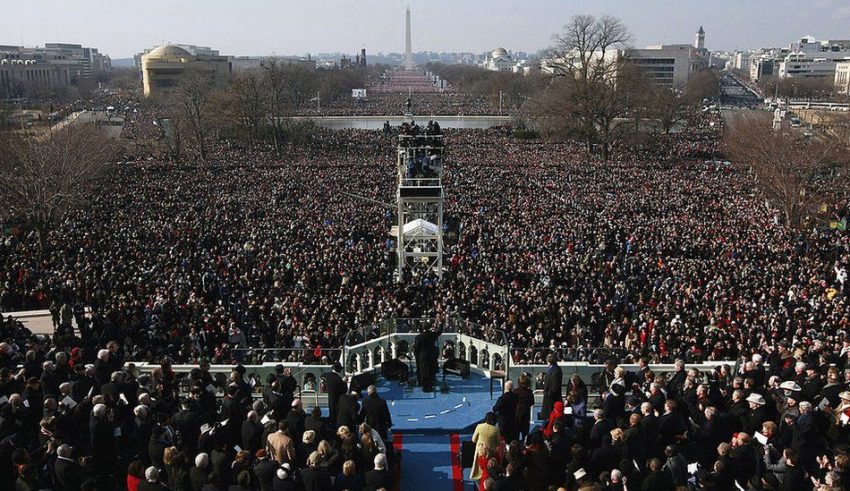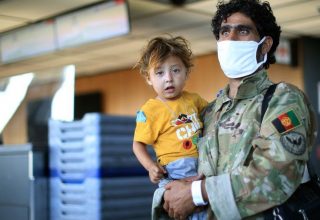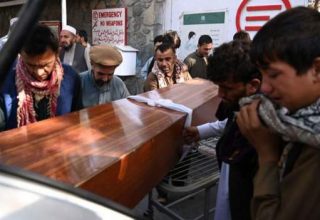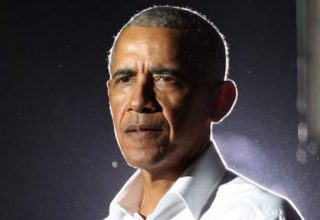
Joe Biden is US president-elect. But the Democrat won’t officially make his move to the White House until inauguration day – a political parade of sorts, when Mr Biden takes the oath of office.
Here’s what you need to know about the big day.
What is the inauguration?
The inauguration is the event where the US president-elect and vice-president elect are sworn in.
“I do solemnly swear that I will faithfully execute the Office of President of the United States, and will to the best of my ability, preserve, protect and defend the Constitution of the United States.”
Once he utters these words, enshrined in America’s founding document, Mr Biden will take his place as the 46th president and the inauguration will be complete (but that’s not all – celebrations traditionally follow).
When is Biden’s inauguration? When does the new president take office?
By law, inauguration day is 20 January. Joe Biden and Kamala Harris will be sworn in at noon that day in Washington DC. Opening remarks are historically scheduled for around 11:30 EST (16:30 GMT).
Once Mr Biden takes the oath, he has officially assumed office and the power of the presidency is his. He’ll move into the White House later in the day – his home for the next four years.
How do you get inauguration tickets?
If you want to attend the inaugural ceremonies, you’ll need to talk to your local representatives first.

Senators and members of Congress are the keepers of the keys. Each has an allotted number of tickets that they can distribute.
But this year, with Covid-19 infections still surging across the US, things will be a little different. Only around 1,000 tickets will be up for grabs, where in the past up to 200,000 were made available for the official ceremony.
This year it amounts to each lawmaker plus a guest. Some members of Congress have already opened up submission forms, with the caveat that nothing is guaranteed.
The Biden team has “strongly encouraged” people to refrain from travelling to Washington to attend, amid fears of virus spread.
In normal circumstances, DC would see hundreds of thousands – make that an estimated two million the year President Obama was sworn in – of inauguration revellers flock to the city, swarming the National Mall and selling out hotels.
Why is the inauguration in January?
A January inauguration wasn’t always the case – the Constitution initially set 4 March as the day for new leaders to take their oaths of office.
Selecting a date four months from the November general election made sense at the time given how long it took for votes from across the country to trickle in to the capital.

But this also meant the lame duck period – the time when an outgoing president is still in office – was quite long. Eventually, as modern advances made it easier to count and report votes, this lengthy time frame was changed. The 20th Amendment, ratified in 1933, decreed the new president would be inaugurated on 20 January instead.
Where is the inauguration held?
The stage is already being set up in front of the US Capitol in Washington DC, overlooking the National Mall. While the scene of crowds amid the nation’s monuments may be a familiar one, it’s only been a tradition since President Ronald Reagan in 1981.
Before that, presidents took their oaths on the other side of the Capitol, inside the chambers of Congress, at the White House, or elsewhere in the country (George Washington took his oath in New York City).

After the swearing in ceremony, there’s usually a parade down Pennsylvania Avenue to the White House.
This year, the celebration’s size will be “extremely limited”, the Biden team has said, and events like the parade will be “re-imagined” amid the coronavirus pandemic. So far, it’s not quite clear what these Covid-friendly plans will look like.
Who is performing?
Mr Biden has not yet announced who he’ll have on stage with him to lend some star power. Expect some big names. In recent years, incoming presidents have added some of the country’s most beloved performers to the day’s programme.
George W Bush’s first inaugural address in 2001 featured music from military bands, but the Republican was later joined by Ricky Martin and Destiny’s Child – featuring a 19-year-old Beyoncé Knowles – for the celebrations. And in 2005, President Bush’s second inaugural celebration was bolstered by performances from singers Hilary Duff and Gloria Estefan.

In 2009, the “Queen of Soul” Aretha Franklin turned out for Barack Obama’s inauguration, performing My Country ‘Tis of Thee.
Beyoncé was also on hand, singing At Last to the first couple at Mr Obama’s inaugural ball. At his second inauguration in 2013, President Obama called on Kelly Clarkson and Jennifer Hudson to do the honours. Beyoncé was back again, this time to sing the national anthem.
At the most recent inauguration, Donald Trump reportedly had more trouble booking performers. Elton John declined Mr Trump’s offer to perform, and reports circulated that Celine Dion, Kiss and Garth Brooks did the same. In the end, the Rockettes, country artist Lee Greenwood, and band 3 Doors Down turned out for Mr Trump’s day.
Will Trump be there?
It’s become customary for the outgoing president to watch the next in line be sworn in. This can make things awkward.
As a former first lady, Hillary Clinton joined her husband, former President Bill Clinton, at Mr Trump’s inauguration – just two months after her election defeat and a bitter campaign against Mr Trump.
There have been exceptions, but none in the last century. President John Adams, his son, President John Quincy Adams, and President Andrew Johnson all sat out their successor’s inauguration.

This year, there’s some speculation that Mr Trump may add himself to this list and boycott Mr Biden’s swearing in.
The president has still not conceded the race, despite Mr Biden’s win in the electoral college – the system the US uses to choose its president – and a more than five million vote lead in the popular vote. So far, Mr Trump has refused to say if he will show.
Some of his supporters have taken it a step further, planning a virtual “second inauguration” for Mr Trump on the same day that Mr Biden takes office. More than 60,000 people have said on Facebook they will attend the event and show their support for Mr Trump.
For his part, Mr Biden has said he hopes his predecessor attends in order to set a positive example of a peaceful transition of power.
But Mr Trump’s presence is “not on the top 10 list” of the president-elect’s priorities, incoming press secretary Jen Psaki said this month.
Source: bbc.com

















